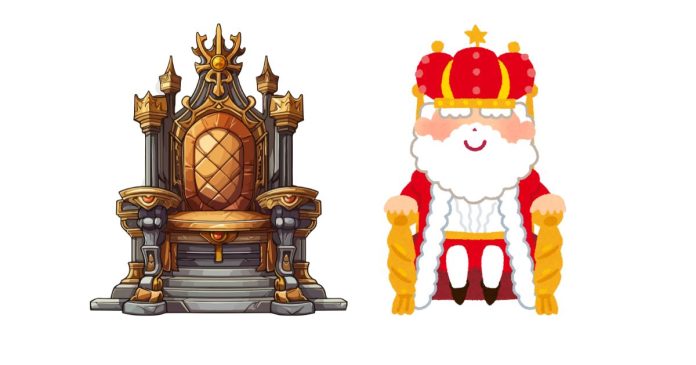If you’ve heard about Game of Thrones but aren’t sure what it is or why it became such a global sensation, you might be wondering: What is Game of Thrones, and what is it really about?
In this blog post, we’ll dive into the world of Game of Thrones, exploring its premise, key themes, and what made it such a captivating and influential series.
What Is Game of Thrones?
Game of Thrones is a television series based on the A Song of Ice and Fire novels by author George R. R. Martin. The show originally aired from 2011 to 2019 and ran for eight seasons on HBO. It is set in the fictional continents of Westeros and Essos and follows the struggles of noble families vying for control of the Iron Throne, the symbol of ultimate power in the Seven Kingdoms.
The series is known for its intricate plotlines, complex characters, and unpredictable twists, which captivated millions of viewers worldwide. It blends elements of medieval fantasy, political intrigue, and epic battles with themes of power, loyalty, and survival.
What Is Game of Thrones About?
At its core, Game of Thrones is a battle for power. The series revolves around several noble families, each with its own ambitions, allegiances, and internal conflicts. The primary conflict centers around who will claim the Iron Throne and rule the Seven Kingdoms. But the story doesn’t stop there—it delves into complex relationships, betrayals, and the consequences of war.
Here are some of the key themes and elements that make Game of Thrones so gripping:
1. Political Intrigue and Power Struggles
The quest for power is one of the central themes of Game of Thrones. The noble families—such as the Starks, Lannisters, Targaryens, and Baratheons—engage in complex political maneuvering, alliances, and betrayals to secure their hold over the throne. The show frequently explores the cost of power and the moral compromises characters make to gain or maintain control.
2. The Battle Between Good and Evil
While Game of Thrones is known for its morally gray characters, it also presents a clash between good and evil in the form of larger-than-life forces. On one side, there are those who seek to protect the realm, while on the other, there are those who want to destroy or conquer. The struggle between these forces is embodied by various factions, including the White Walkers—an ancient, supernatural threat from the North.
3. Family Loyalty and Betrayal
Family dynamics are a driving force throughout the series. The bonds of loyalty, love, and betrayal within families like the Starks, Lannisters, and Targaryens are central to the story’s emotional depth. Characters often face difficult choices between family loyalty and personal ambitions.
4. The Fantasy Element
In addition to its political and social drama, Game of Thrones features elements of fantasy, such as dragons, magic, and supernatural creatures. These elements add an exciting layer to the series, with the return of dragons and the looming threat of the White Walkers creating epic moments that are key to the show’s success.
5. Survival and Consequences
The series frequently emphasizes the brutal consequences of war, power struggles, and betrayal. Many characters, including fan favorites, meet tragic or unexpected ends. This unpredictability keeps viewers on edge and adds to the realism of the show.
Why Was Game of Thrones So Popular?
Several factors contributed to the immense popularity of Game of Thrones:
- Complex Characters and Storylines: Viewers became deeply invested in the characters, many of whom experienced significant growth, challenges, and unexpected twists. The intricate storylines, filled with political maneuvering and shocking plot twists, kept audiences captivated for years.
- Unpredictability and Shocking Moments: Unlike many other shows, Game of Thrones wasn’t afraid to kill off major characters or take the story in unexpected directions. This unpredictability kept fans on the edge of their seats, eagerly awaiting the next episode.
- High Production Value: The show’s cinematic quality, including grand battles, stunning landscapes, and impressive special effects (like the dragons), made it a visual masterpiece.
- Cultural Impact: Game of Thrones became a cultural phenomenon, inspiring countless discussions, memes, and fan theories. It attracted a dedicated fanbase and became a part of mainstream conversation, making it one of the most watched and talked-about shows in television history.
Game of Thrones is a deeply complex series filled with power struggles, political intrigue, and larger-than-life characters. Set in a fictional medieval world, it weaves together elements of fantasy with real-world themes of power, family, and survival. Whether you’re interested in the epic battles, the complex relationships, or the supernatural threats, there’s something for everyone in this gripping tale of betrayal, loyalty, and the quest for the Iron Throne. If you’re looking for a series that will keep you on the edge of your seat, Game of Thrones is undoubtedly one to dive into.


